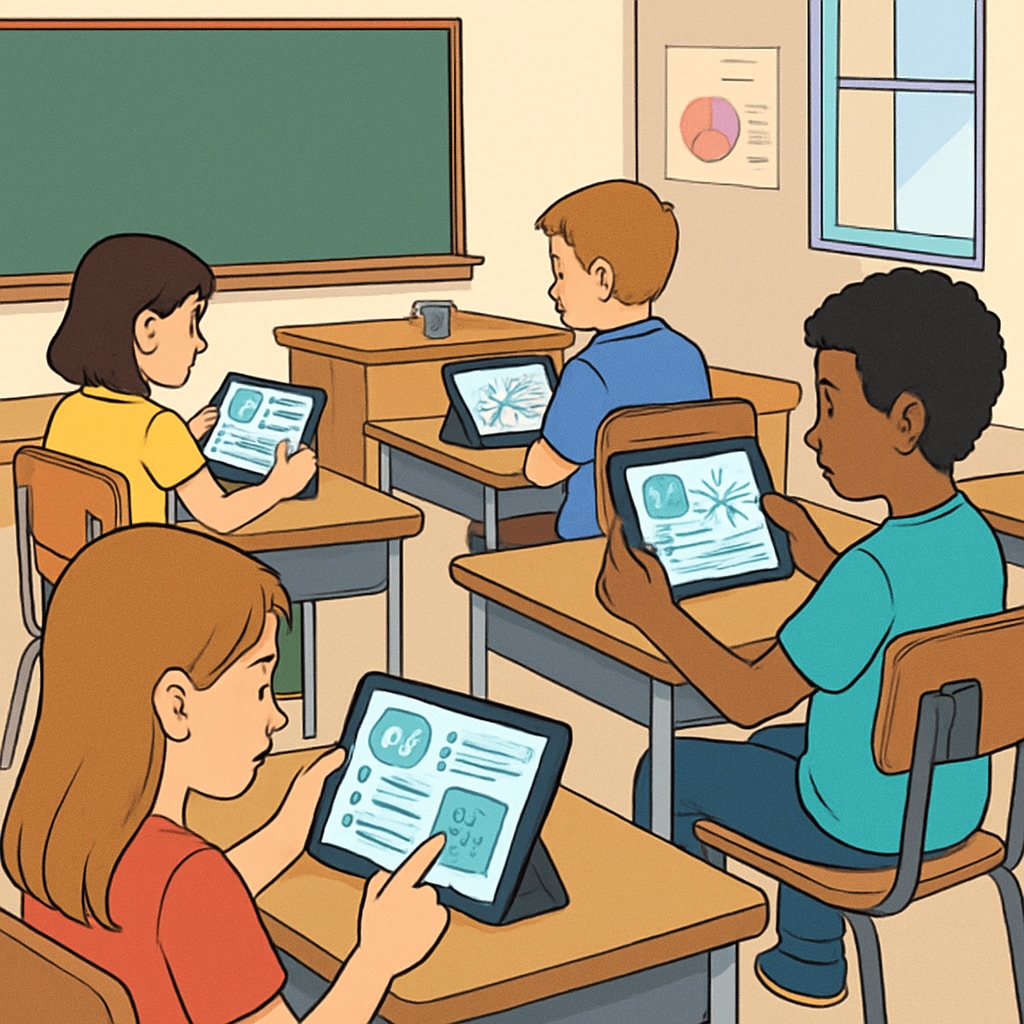The integration of artificial intelligence (AI) into school education is no longer a distant possibility—it is rapidly becoming the new reality. As we look ahead to the future impact of AI, particularly in the K12 education sector, its transformative potential is evident. Over the next 5 to 10 years, AI will revolutionize classrooms by introducing personalized learning experiences, reshaping the role of teachers, and reforming traditional evaluation systems. However, this disruption also brings challenges that educators and stakeholders must navigate carefully.
Revolutionizing Personalized Learning with AI
One of the most promising applications of artificial intelligence in education lies in its ability to deliver highly personalized learning experiences. Traditional K12 classrooms often struggle with catering to the unique needs of each student due to time and resource constraints. AI-powered tools, such as adaptive learning platforms, can analyze individual learning patterns and adjust content delivery accordingly.
For example, platforms like DreamBox or Carnegie Learning use machine learning algorithms to identify areas where students struggle and provide targeted support. As a result, students can progress at their own pace, fostering a deeper understanding of concepts without the pressure of keeping up with peers.

Furthermore, personalized learning through AI can benefit students with special needs. By tailoring educational content to suit diverse learning abilities, AI ensures inclusivity, allowing every student to thrive regardless of their challenges.
Transforming the Role of Teachers
While AI is becoming a pivotal part of the education system, it is important to note that it will not replace teachers. Instead, it will redefine their roles. Teachers will transition from being the sole providers of knowledge to facilitators or mentors who guide students in their learning journeys.
AI can handle repetitive administrative tasks such as grading and attendance tracking, freeing up time for teachers to focus on meaningful interactions with students. For instance, platforms like Gradescope automate the evaluation of assignments, enabling teachers to devote more time to creating innovative lesson plans.
Additionally, AI can assist teachers in identifying at-risk students early by analyzing behavioral patterns and academic performance data. By intervening promptly, educators can offer the necessary support to help students succeed.
Reshaping Educational Assessment and Evaluation
Traditional assessment methods, such as standardized tests, often fail to capture the diverse abilities of students. AI has the potential to revolutionize how students are evaluated by providing more comprehensive and continuous assessment tools.
For instance, AI-driven platforms can assess not only academic knowledge but also critical thinking, creativity, and problem-solving skills. Tools like natural language processing (NLP) can analyze students’ written work to evaluate their depth of understanding and reasoning.

Moreover, real-time feedback enabled by AI allows students to understand their strengths and weaknesses immediately, making the learning process more dynamic and engaging. This shift from static to dynamic evaluation aligns with the needs of a rapidly changing world.
Challenges and Ethical Considerations
Despite its advantages, the integration of AI into education is not without challenges. Issues such as data privacy, algorithmic bias, and the digital divide must be addressed to ensure equitable access and ethical implementation.
For example, low-income schools may lack the infrastructure to adopt advanced AI tools, potentially widening the gap between privileged and underprivileged students. Furthermore, reliance on algorithms raises concerns about transparency and fairness in decision-making processes. Stakeholders must work collaboratively to establish guidelines and policies that prioritize student welfare.
In addition, teachers and administrators will require adequate training to effectively use AI tools. Professional development programs must be designed to equip educators with the skills needed to navigate this new landscape.
Embracing the Future of Education
As artificial intelligence continues to influence school education, its future impact holds immense promise. By fostering personalized learning, redefining teacher roles, and reshaping evaluation systems, AI has the potential to create more inclusive and effective classrooms. However, its successful implementation will require a balanced approach that addresses ethical concerns and ensures accessibility for all students.
Education stakeholders, including policymakers, educators, and technologists, must collaborate to harness the benefits of AI while mitigating its challenges. By doing so, we can create a smarter, more equitable education system that prepares students for the opportunities and challenges of the modern world.
Readability guidance: This article uses short paragraphs and clear transitions to enhance readability. Lists and examples are provided where appropriate to summarize key points. Efforts are made to limit passive voice and lengthy sentences, ensuring the content is engaging and accessible.


